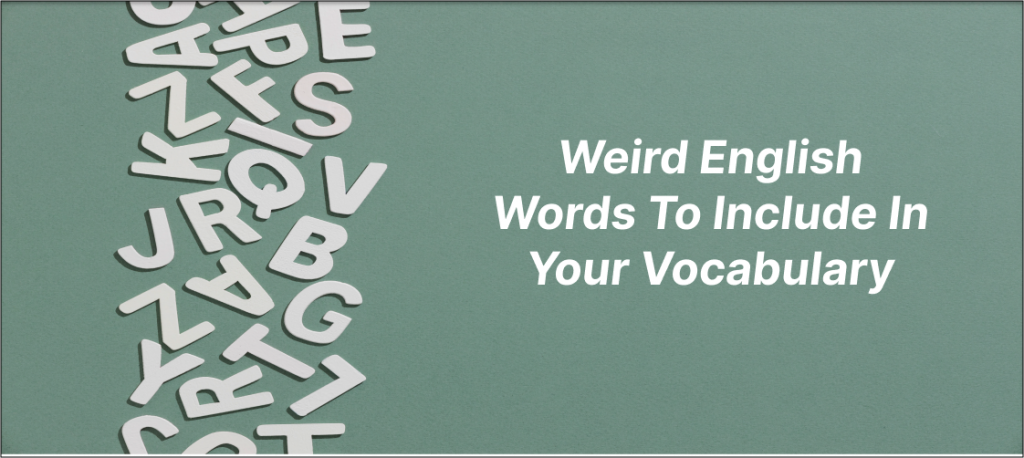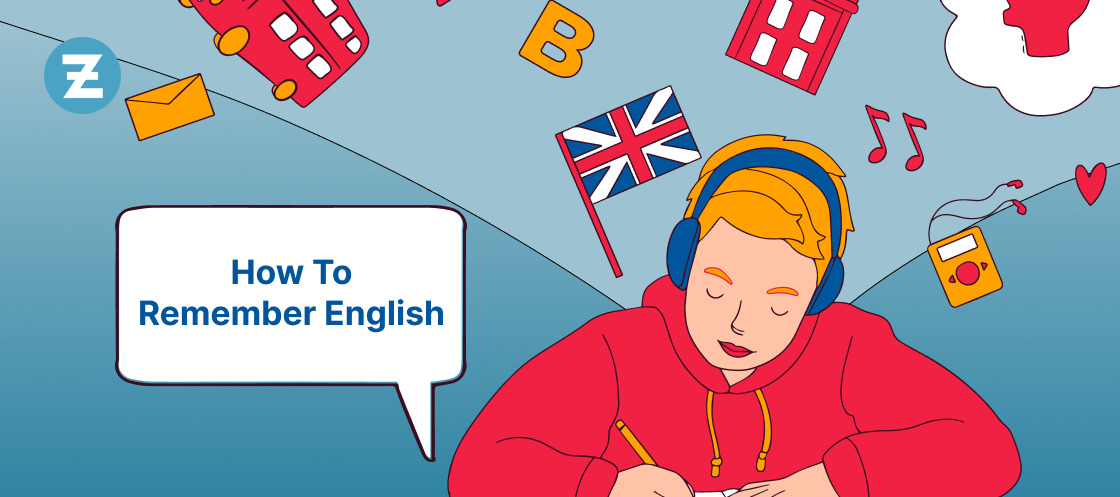Are you a language enthusiast who loves discovering new words to add to your vocabulary? Do you find yourself using the exact words repeatedly and want to spice up your language with some unusual and weird English words in your vocabulary? Well, you are in luck! In this blog, we will explore 15 weird English words you can start incorporating into your daily life.
So, let’s get started exploring some of the weirdest words in the English language and discover how we can use them to express ourselves better.
Poppycock
Poppycock is a peculiar word that has been used for over a century. It’s often used to dismiss something as nonsense or absurdity. But where did this strange word come from?
The word “poppycock” is believed to have originated in the Netherlands, where the Dutch would use the term “pappekak” to describe soft or weak feces. Later, the word became the English language, taking on a different meaning. In English, “poppycock” refers to something considered foolish, absurd, or untrue.
An example of using “poppycock” in a sentence could be: “Don’t listen to him; his theories are just poppycock.” In this example, the speaker dismisses someone’s ideas as nonsense or foolishness.
Cattywampus
Cattywampus is one of the weirdest English words that has been around for centuries. The definition of “cattywampus” is askew, diagonal, or not aligned properly. This word often describes something crooked or out of place, such as a painting hanging askew on the wall.
The word “cattywampus” can be traced back to the Southern United States, derived from “cata,” meaning diagonally, and “wampus,” similar to “wampish,” meaning to flop around. The word was adopted by Tennessee and has been used in various parts of the country ever since.
For example, you might use “cattywampus” to describe a picture frame hanging crooked on the wall or a stack of books not properly aligned. You could say, “The painting on the wall was hung all cattywampus, which made it look like it was about to fall off at any moment.”
Tergiversate
Tergiversate is a strange and intriguing word with a rich history. It comes from the Latin term “tergum,” meaning “back,” and “versare,” meaning “to turn.” In English, it means to be indecisive or to change one’s mind frequently. The word first appeared in the 17th century and has since been used in literature and politics.
An example of the use of tergiversate is “John was tergiversating on the issue of immigration reform, unable to decide whether he supported the proposed changes or not.” In this example, John is seen as avoiding a firm commitment to a stance on the issue by hedging his bets and not taking a stand one way or the other.
Tergiversate is a word to add to your vocabulary to impress others with your knowledge.
Borborygmus
Borborygmus is a strange-sounding word that refers to the rumbling or gurgling noises that emanate from the stomach or intestines. The term comes from the Greek word borborygmós, which means “intestinal rumbling.”
The word borborygmus is typically used in medical or scientific contexts but can also be used in everyday conversation to describe the sounds of a growling stomach. Various factors, such as hunger, digestion, or anxiety, can cause noise.
Here is an example of how to use the word in a sentence: “After skipping breakfast, my stomach started to make loud borborygmus noises during the morning meeting.”
Read Also: Professional English Words To Use In Workplace
Ragamuffin
Ragamuffin is an unusual word not commonly used in everyday language, but it can be a fun and interesting addition to your vocabulary. The word has an interesting history, originating in the 14th century in Middle English. It combines the words “ragged” and “muffin”, a term used to describe a type of cake. Over time, “ragamuffin” began to be used to describe a person who was unkempt, disheveled, or dressed in tattered clothing.
Example: “Her parents were disappointed that their daughter had decided to marry a ragamuffin like him, who had no job or education.”
In this example, “ragamuffin” is used to describe a person who is unkempt, poorly dressed, and perceived to be of low social status. It is often used in a derogatory way to refer to someone who appears dirty, disheveled, or shabbily dressed.
Chivy
Chivy is a somewhat unusual English word often used to mean “to tease or annoy someone in a playful way.” It is often used to describe the actions of children, siblings, or friends who are playfully teasing each other. The word “chivy” dates back to the 19th century and is believed to have originated in England. It was first used to mean “to chase or pursue,” but over time, it came to mean “to harass or tease someone playfully.”
Here’s an example of using “chivy” in a sentence: “The children spent the afternoon chivying each other around the yard, giggling and running in circles.”
Widdershins
Widdershins is a unique and uncommon English word that describes something moving in a counterclockwise or contrary direction. It is also used to describe a situation going against the natural order of things or is considered bad luck.
The word “widdershins” has Scottish and Northern English origins, and it is believed to have come from the Middle Low German word “weddersinnes” which means “opposite course.” It was first recorded in English in the early 1500s.
An example of the word in use would be: “The storm clouds were moving widdershins, contrary to the usual eastward flow of weather patterns.”
Flabbergast
Flabbergast is an interesting word with a long history dating back. The word flabbergast is believed to have originated from combining two other words: flabby and aghast. “Flabby” refers to something weak or lacking in strength, while “aghast” means to be struck with fear or shock. When these two words are combined, they create the word flabbergast, which means to shock or surprise someone to the point of speechlessness.
An example of using the word ‘flabbergast’ in a sentence would be: “The audience was flabbergasted by the incredible performance of the magician.” In this sentence, the audience is so amazed by the act that they are left speechless.
Kerfuffle
Kerfuffle word refers to a commotion, fuss, or uproar over a trivial matter. While it may not be as commonly used as some other English words, the Kerfuffle is still a fun and useful word to know. The word is believed to have been derived from the Scottish Gaelic word car, which means twist or turn, and the verb fuffle, which means to disarrange or confuse.
An example of using Kerfuffle in a sentence is: “There was a bit of a kerfuffle at the party last night when one of the guests spilled wine on the carpet.” In this sentence, the word kerfuffle describes a minor commotion or disturbance during the party.
Valetudinarian
Valetudinarian is an adjective that describes someone excessively concerned with their health and often preoccupied with imaginary ailments or minor illnesses. It can also refer to someone chronically ill or weak, especially due to old age.
The word “Valetudinarian” originated in the mid-18th century from the Latin term “valetudo,” which means “health.” It was first used to describe someone who was excessively concerned with their health, often to the point of being hypochondriacal.
Here’s an example of how you could use Valetudinarian in a sentence: Mary’s grandfather was a valetudinarian and constantly worried about his health, often calling the doctor for minor ailments. Despite the doctor’s advice, he also insists on taking various supplements and medicines.
Cachinnate
Cachinnate is a rarely used and peculiar word you might not be familiar with. The word is a verb that means to laugh loudly or to guffaw uncontrollably. While it may not be commonly used in everyday conversations, the word cachinnate is still an interesting addition to your vocabulary.
Cachinnate was first derived from the Latin word cachinnio, derived from the Greek word kakhos, meaning “laughter.” The word has been in use ever since in English and has been found in both written and spoken contexts.
Here’s an example of how you could use cachinnate in a sentence: “When the comedian told his joke, the audience began to cachinnate, causing the entire room to shake with their laughter.
Floccinaucinihilipilification
Floccinaucinihilipilification(pronounced as flok-si-naw-si-ni-hi-li-pi-li-fi-kay-shun) is an uncommon English word that has been used in daily life for centuries. It is considered the longest non-technical English word, although it is often shortened to “flocci.”
The term is derived from Latin and estimates something of little or no value. It is an example of a long word that most people don’t often encounter daily, and it is a weird English word to pronounce.
An example of the word floccinaucinihilipilification used in a sentence is: “He thought the task he was given was an exercise in floccinaucinihilipilification.” This sentence describes the act of someone being given a task that they deem to be of little or no value.
Read Also: English Words With Same Spelling and different Meaning
Lackadaisical
Lackadaisical is a word that describes someone or something that is lacking in energy or enthusiasm and is often characterized by a sense of laziness or indifference.
It is derived from two words: “lackadaisy”, which means “lacking in enthusiasm”, and “cadis”, which means “careless” or “slothful.” Together, these words form a term that aptly describes someone not very motivated or interested.
Here’s an example of how you could use lackadaisical in a sentence: “The employees were often lackadaisical in their work, which led to many mistakes and delays.”
Berserk
Berserk is a word that can be used to describe someone who is out of control or acting in a wild, frantic manner. It is derived from the Old Norse word “berserkr,” which describes warriors who fought with an intense, frenzied rage.
Here’s an example of how you could use berserk in a sentence, using other uncommon words: “The normally placid librarian went berserk when she discovered that someone had defaced the irreplaceable tome with a vitriolic screed.”
While not as long or weird as other words we have explored, berserk is still an interesting and useful term. It can be used in a variety of situations to describe someone who is acting recklessly or uncontrollably.
Read Also: Most Attention-Grabbing Longest Words in English!
Griffonage
Griffonage is a word that is used to describe sloppy or illegible handwriting. It is derived from French and is pronounced: “gree-fon-AHJ”. It was first used to refer to the scribbling of signatures on legal documents and other documents that were often improperly deciphered. Over time, however, the term has come to refer to any handwriting which is illegible or difficult to decipher.
Here’s an example of how you could use griffonage in a sentence, using other uncommon words: “The professor’s griffonage was so indecipherable that even the most erudite of students struggled to make sense of her lectures.”
Conclusion :
Expanding your vocabulary with uncommon and weird English words is a fun and engaging way to improve your language skills. With the help of online language polishing apps, you can easily incorporate these new words into your everyday conversations and writing. Whether you use”gobbledygook” to describe confusing language or “Floccinaucinihilipilification” too weird English words to pronounce, using unique words can help you stand out and make a lasting impression. So why not take advantage of the resources available and start learning some of these weird English words today? With a little practice, you’ll quickly impress your friends and colleagues with your new vocabulary!








